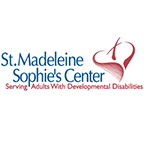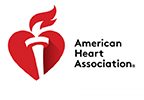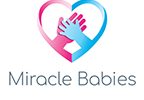St. Madeleine Sophie’s Center

In 1966, the Religious of the Society of the Sacred Heart created a program in El Cajon, California for preschool children with developmental disabilities. It began with one classroom and eight students. The first director of St. Madeleine Sophie’s Center (SMSC) was Sr. Mary Mardel, RSCJ who was followed by Sr. Sally Rude, RSCJ. In 1968, Sr. Maxine Kraemer, RSCJ, took on the role of director.
“We decided to start a preschool to prepare these children for public school. It started on nickels and dimes. The parents came on Saturdays to help.
Then, we received our first gift of $25,000 to build the first small building. The building was completed in January 1966, and we celebrated the opening of St. Madeleine Sophie’s Center on May 25, 1966 – the Feast Day of St. Madeleine Sophie and the centenary of her death.”
– Sr. Maxine Kraemer, RSCJ
In 1975, a new federal law mandated that the public school system assume responsibility for training these young students. The new law also required changes in training for teachers of the developmentally disabled and changes in public school programs and facilities that, before this time, were not designed to meet the needs of the students. Integrating children with disabilities into public schools opened a whole new world as social interactions and broader training helped these students achieve higher skill levels. It also created higher aspirations for their future and higher expectations of living full and productive adult lives.
SMSC Transitions to Serving Adults with Developmental Disabilities
Recognizing that the needs of preschool-age children with developmental disabilities were going to be met by the public school system, SMSC determined in 1972 to change its focus and transition its services to meet the needs of adults with developmental disabilities. Sr. Maxine Kraemer was instrumental in orchestrating this transition to services for adults and educating the community about the fact that SMSC was no longer a preschool. Once the focus changed, parents were thrilled to learn that SMSC was available to serve their adult children.
Once SMSC enrolled its first 12 adult students, Sr. Kraemer launched a four-pronged program that included:
- Education – continuing math, reading, and basic education programs
- Independent Living Skills
- Pre-vocational training
- Arts – dance, choral club, music appreciation, and visual arts
1980s – Present
Over the years, SMSC continued to enhance and expand its programs and welcomed a growing number of adult students (also called consumers). Expanded opportunities were offered that helped these individuals live fuller lives, work at jobs they enjoyed (which also enabled them to earn needed income), and participate in some of life’s simplest pleasures, such as watching a favorite movie, sharing a meal with friends, and reminiscing with family. Sometimes for those who have a developmental disability, the simplest dream can become a great accomplishment; and sometimes these dreams are powerful statements of how much this incredible community of people not only wants to give, but also demonstrates how much they have to give from their hearts.
A recent survey provided this representative sampling of student dreams:
- to go out and see new things
- to win more Special Olympics medals
- to be a lifeguard
- to take a first aid class
- to be an artist
- to go swimming
- to learn how to vacuum
- to go to parks and dances
- to watch movies
- to work in the garden
- to make friends
- to make other people happy
Into the Greater Community
 SMSC has always been there to help its students work through the daily challenges of finding fulfillment and happiness; and battle obstacles such as prejudice, discrimination, and society’s misconceptions. SMSC is also a leader in reaching out to the greater community and helping to educate the public about the realities of developmental disabilities which know no social boundaries and touch everyone – rich and poor, urban and rural, and every race and nationality. Because there is no cure for developmental disabilities – which include Down syndrome, autism, epilepsy, and cerebral palsy – the developmentally disabled require special supports through all stages of life, from infant to senior citizen.
SMSC has always been there to help its students work through the daily challenges of finding fulfillment and happiness; and battle obstacles such as prejudice, discrimination, and society’s misconceptions. SMSC is also a leader in reaching out to the greater community and helping to educate the public about the realities of developmental disabilities which know no social boundaries and touch everyone – rich and poor, urban and rural, and every race and nationality. Because there is no cure for developmental disabilities – which include Down syndrome, autism, epilepsy, and cerebral palsy – the developmentally disabled require special supports through all stages of life, from infant to senior citizen.
At SMSC, quality is never sacrificed, and each student’s individual needs are met. With a low student-to-instructor ratio, SMSC has been very successful in attracting highly skilled employees. SMSC employs over 110 staff members and is served by more than 150 dedicated volunteers. And, because public transportation is inaccessible or inappropriate for use, SMSC has its own fleet of more than 30 paratransit vans and buses that transport students between home, campus, and work sites, five days a week.
Activity Center, Adult Development Center, Behavior Modification, and Supported Employment
 St. Madeleine Sophie’s Center’s programs provide work training and social experiences that encourage students to become well-rounded, contributing members of the greater community. SMSC is highly regarded in the business community. We take pride in getting to know the businesses to whom we provide services and set high standards of quality. Our programs receive the highest rating for services from the Commission on Accreditation for Rehabilitation Facilities (CARF). SMSC is recognized for having many strengths, including:
St. Madeleine Sophie’s Center’s programs provide work training and social experiences that encourage students to become well-rounded, contributing members of the greater community. SMSC is highly regarded in the business community. We take pride in getting to know the businesses to whom we provide services and set high standards of quality. Our programs receive the highest rating for services from the Commission on Accreditation for Rehabilitation Facilities (CARF). SMSC is recognized for having many strengths, including:
- Empowerment of students.
- Innovative ideas designed to focus on strengths and abilities of students and staff members.
- Excellent relations with community organizations.
- Creativity in designing services and programs.
St. Madeleine Sophie’s Center Contact Info
St. Madeleine Sophie’s Center
2119 East Madison Ave
El Cajon, CA 92019
www.stmsc.org




